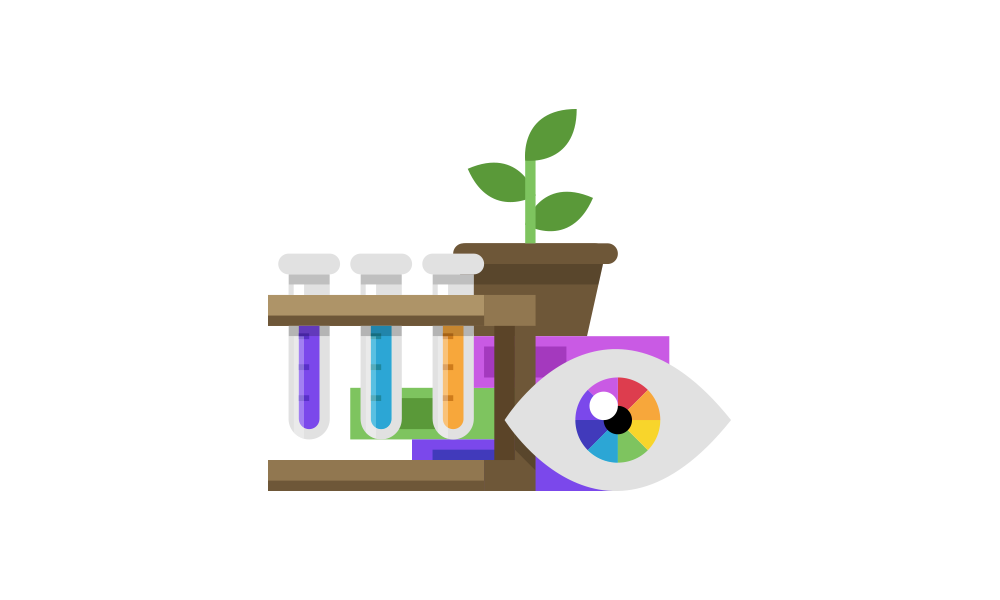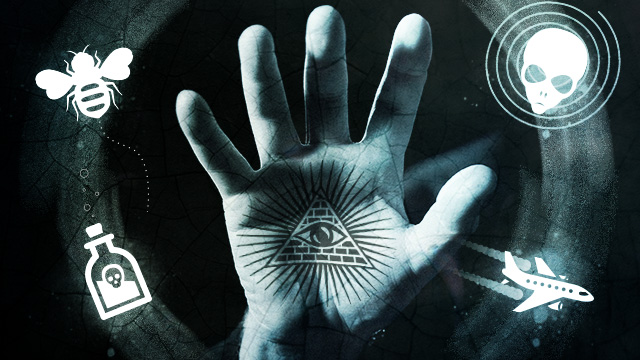Nowadays we can find a vast range of conspiracy theories, including reptilians, chemtrails, the New World Order, MKUltra, secrets experiments with aliens in Area 51 and so on. As the BBC suggests, an immense number of people, regardless of social class, gender and age, accept at least one, if not a few, conspiracy theories. This happens because there is an unlimited quantity of these theories.
All these bizarre speculations have led scientists and historians to attempt to counteract them by means of comprehensive clarifications. For example, they have debunked in detail the theory that the Moon landings were hoaxes.
The heart of the matter is: What makes people believe conspiracy theories?
According to the website
Live Science, people tend to have a predilection for conspiracy theories that parallel their political views. For instance, Republicans are more likely to believe that climate change is a tall story. On the other hand, citizens who entertain the idea of Bush destroying the Twin Towers are usually Democrats.
Nevertheless, it seems that certain people follow conspiracies of any sort in general, therefore it is likely that their particular psychological traits make them prone to do so.
One major factor that fosters conspiracy is "schizotypy". Schizotypy is a group of features that entails a disposition to cast doubt on conventional thinking, to have nonconformist beliefs and to perceive stimuli that are not actually present.
Schizotypy is also related to the fact that conspiracists need to feel unique. Thanks to their deviation from mainstream beliefs, they can distinguish themselves from the crowd, and simultaneously find comfort within a community of other people who think like them.
In addition, conspiracists have an exaggerated concern that the earth is unsafe. Thus they think that there are warnings indicating that ominous destruction is around the corner.
Apart from this, conspiracy believers most probably consider absurd quotes as enlightened. If they read a quote with a mysterious and deep air to it, their intuition tells them it must actually be really profound, even if it is pure nonsense. For example, at first sight the sentence "Wholeness quiets infinite phenomena" looks like an inspired quote, but in fact it makes no sense, though it is probably appreciated by people who usually follow their intuition and believe in the supernatural.
Finally, conspiracists see intention in almost everything, and even assign it to inanimate objects. Prof French affirms that humans are skilled at detecting patterns and repetition. However sometimes they go too far, and think there is purpose and meaningfulness when there is not. We are witnesses to events, and we instantly think that someone or something had motives to originate them. Typically, we detect certain concurrences in connection with major events and later we use them as elements of a narrative of our own creation. This story turns into a conspiracy theory as soon as it involves heroes and villains, the latter causing all the situations we detest. If we think about it, this is similar to our conception of politics. We frequently praise or condemn politicians for positive or negative happenings, while we really do not know how their policies influence the results, and besides, many situations are out of their control.
Other factors that have been mentioned as fostering conspiracy theories are feelings of impotence against a destiny that is beyond our control (but, as we have mentioned, it revolves around something significant, rather than arbitrary), and the human need to find explanations for events, by answering big questions by ourselves. Even if, in doing so, we do not come across the truth, we supposedly discover something that comforts us or that matches our world perspective.
Most often we create our convictions in ways that corroborate what we want to be valid. Having access to the media only makes certain people focus on misleading information. At the end of the day, we just need to feel comfortable, not to be rigorous. Since my individual vote does not really make a difference, if it makes me feel fine to affirm that George Bush blew up the Twin Towers, then the subconscious reward for having this point of view is probably larger than any retribution that I might suffer if my insights are incorrect.
Even with all that, conspiracy theories are still an enigma in the sense that humans habitually have belief systems, such as religion, which are generally positive and inspiring, in order to satisfy their emotional aims, such as the need to feel that everything is OK with them and their life. Nevertheless, conspiracy theories do not fit this pattern. Maybe we could affirm that if one sees perversion all around, at least they can point an accusing finger at others, and there is a gleam of hope that someone could take measures.
We also need to take into account that real incidents such as the Watergate Scandal, which involved a president taking part in a criminal conspiracy, have led American citizens to contemplate the possible authenticity of other secret plans being orchestrated by influential figures.
Now that we know the possible reasons of the origin of conspiracy theories, can we possibly mitigate them? A study from 2018 confirms this: if we give people a sense of control and we show them tangible ways for self-improvement and to make progress in their projects, they are less likely to hold absurd assumptions about the world. This can even be applied to companies too. If employers want to reduce rumours in the office, science suggests they should frequently talk with their workers about their goals and help them assimilate the necessary actions that they should take to achieve them.
Sources

















